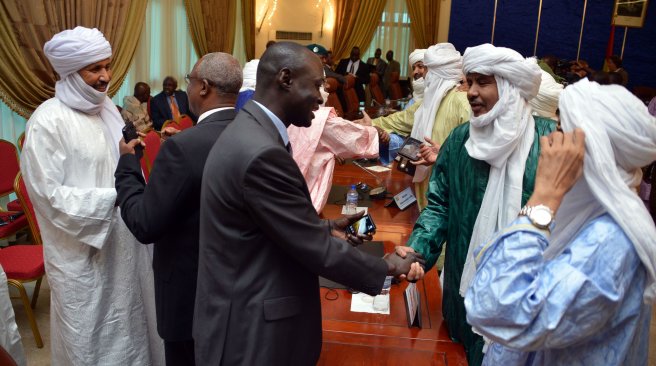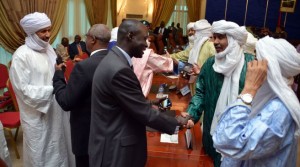
The Malian government has reached a ceasefire agreement with the Tuareg rebels paving the way for talks to concentrate on crucial questions such as identity, a form of limited self-rule and more rights for the northern desert region under the control of the Tuareg rebels that they refer to as Azawad.
Thursday’s deal calls for an immediate halt to hostilities and provocations and was signed by the rebel coalition, including Tuareg MNLA and Arab MAA groups as well as the Mali government and a pro-Bamako alliance.
The Tuaregs were able to take control of some of the Malian territory in the north when Al-Qaeda in the Maghreb (AQMI) staged an offensive on the country. International forces led by France were able to push back AQMI but the Tuaregs refused to hand over the areas they have defended against the Islamists to the Malian government.
Bilal Ag Acherif, leader of MNLA, said the agreement should enhance “good faith” during negotiations. The Malian government has ruled out an autonomy plan but it is willing to consider giving more power to local authorities.
U.N. Mali mission chief Mongi Hamdi is hoping that the ceasefire agreement will lead to a peace deal.
However, Bamako is under immense pressure from the population in the south not to cede to the demands of the Touaregs with many believing that they played a part in the Islamist offensive.
The ongoing UN sponsored peace negotiations are being held in Algeria and an initial UN document stated that it recognizes Mali’s unity and territorial integrity, but also the need for more rights and development for the north. Algeria Foreign Minister Ramtane Lamamra said the agreement will help to build confidence of reaching a final deal.

